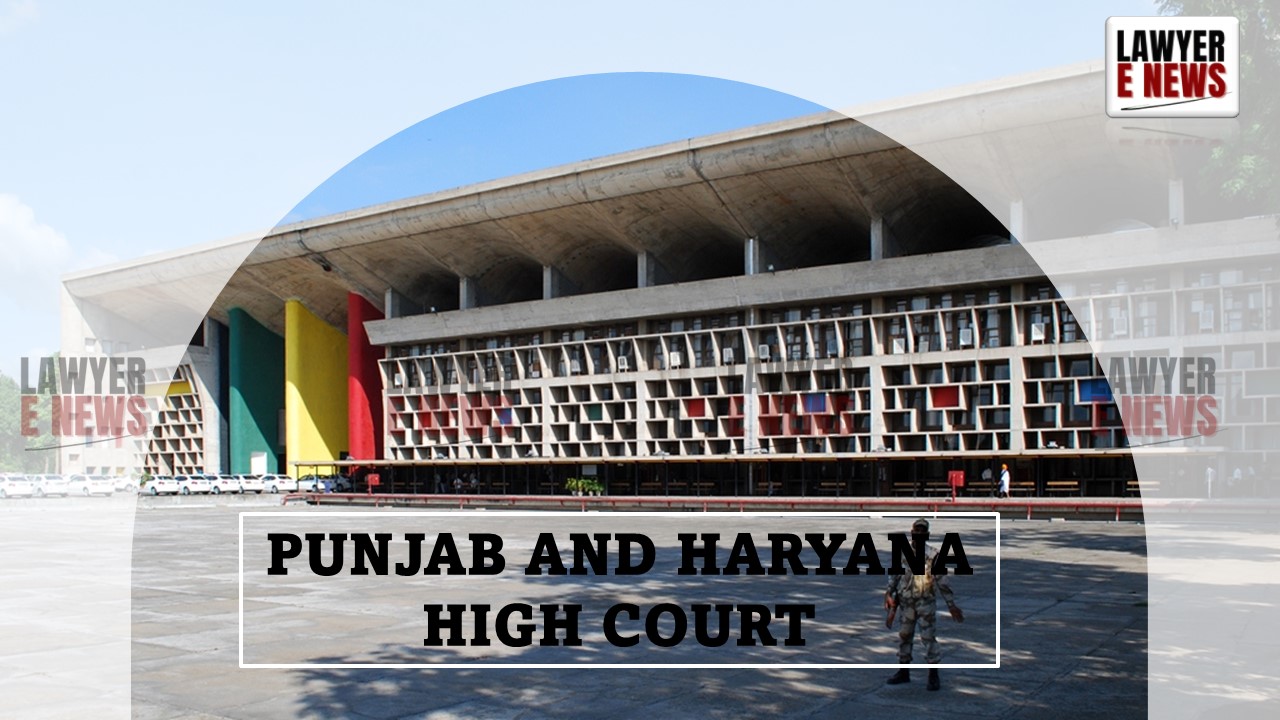-
by Admin
15 February 2026 5:35 AM



High Court of Punjab and Haryana delivered a significant judgment in the case of Sakeel Ahmed vs. State of Haryana (CRM-M-23779-2024), addressing procedural impropriety in the confiscation of property under the Haryana Gauvansh Sanrakshan and Gausamvardhan Act, 2015. The court quashed the confiscation order of a vehicle used in an alleged offence under the Act, emphasizing the importance of procedural fairness, particularly the right of the owner to be heard before such an order is passed.
The case arose when a truck owned by the petitioner, Sakeel Ahmed, was seized on January 14, 2022, following its involvement in the transportation of cattle. The authorities alleged that the cattle were being transported for slaughter, which is prohibited under the Haryana Gauvansh Sanrakshan and Gausamvardhan Act, 2015 (HGSG Act). The vehicle was subsequently confiscated by the Sub-Divisional Magistrate (SDM) of Hansi, who is the competent authority under the HGSG Act. However, the vehicle owner, Shakeel Ahmed, was not heard before this order of confiscation was passed.
The central legal question was whether the vehicle owner had been afforded the statutory right to be heard before the confiscation, as mandated under Section 17(2) of the HGSG Act. The petitioner challenged the SDM’s order, arguing that the confiscation occurred without the owner being given any opportunity to present his case.
The court observed that under the HGSG Act, before a vehicle used in the commission of an offence can be confiscated, the owner must be given a reasonable opportunity to be heard, as outlined in the proviso to Section 17(2) of the Act. In this case, the SDM failed to provide such an opportunity.
Failure to Follow Statutory Procedure: The court noted that the competent authority had not followed the statutory mandate of hearing the vehicle owner, which was a clear violation of the legal provisions of the HGSG Act. Justice Anoop Chitkara, who presided over the case, pointed out:
"On the face of it, the Competent Authority did not hear the truck owner, who was the affected person in terms of Section 17 of the HGSG Act."
Rejection of Revision Petition by Sessions Court: The petitioner had filed a revision petition before the Sessions Court, which also failed to recognize this procedural lapse and upheld the SDM's confiscation order. The High Court highlighted this as another instance of overlooking the foundational illegality of not hearing the vehicle owner.
Right to Be Heard is Fundamental: The Court reiterated the importance of the legal maxim audi alteram partem (right to be heard) and concluded that the lack of such opportunity rendered the entire confiscation process illegal.
"The SDM, acting as a quasi-judicial authority, was under an obligation to follow the statutory requirements, as was the additional Sessions Judge, and they did not."
The High Court quashed the confiscation order dated April 10, 2024, and ordered the immediate release of the vehicle to the petitioner. The court further instructed that the vehicle could not be sold without permission from the competent authority, ensuring compliance with any future legal requirements.
Date of Decision: September 26, 2024
Sakeel Ahmed vs. State of Haryana
